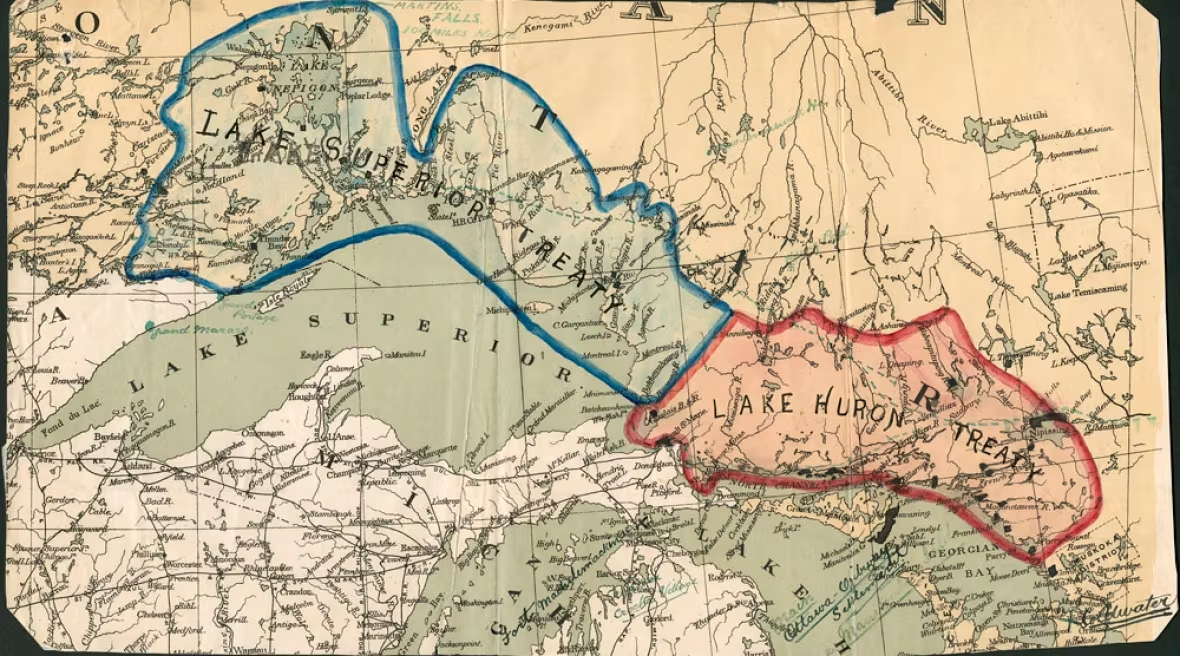For the past 150 years, the governments of Ontario and Canada have disregarded their treaty obligations to the Anishinaabe of the upper Great Lakes, the Supreme Court of Canada ruled on Friday.
In a unanimous decision, the top court stated that the failure to increase annual per-head resource extraction revenues since 1875 for residents of two First Nations groups has dishonored the Crown.
“For almost a century and a half, the Anishinaabe have been left with an empty shell of a treaty promise,” the ruling said.
“It is time for the parties to return to the council fire and rekindle the perpetual relationship that the Robinson treaties envision. Nothing less will demonstrate the Crown’s commitment to reconciliation.”
The ruling does not award a settlement to the Huron or Superior Anishinaabe First Nations but sets out the Crown’s obligation to negotiate an increase in resource revenues retrospectively and into the future.
The case dates back to 1850, when the Robinson-Huron and the Robinson-Superior treaties were signed between the Crown and the Anishinaabe of the upper Great Lakes.
As part of the agreement, the Huron and Superior ceded more than 100,000 square kilometers of territory, including Thunder Bay, North Bay, Sault Ste. Marie, and Sudbury, in exchange for an annual payment in perpetuity.
Under the Robinson-Huron treaty, each First Nation member received $1.70 per head per year. Under the Robinson-Superior treaty, the rate was $1.60 per person.
In 1875, that annual payment was increased to $4 per person, but it has not increased since.
Mockery of the Crowns Treaty Promise.
Over time, the number of Huron members, both on and off reserve, grew from 1,422 to nearly 30,000, while Superior members increased from 1,240 to over 13,000.
As part of the 1850 agreement, the Anishinaabe were also granted the right to continue hunting on the land.
“Today, in what can only be described as a mockery of the Crown’s treaty promise to the Anishinaabe of the upper Great Lakes, the annuities are distributed to individual treaty beneficiaries by giving them $4 each,” the ruling said.
“Although the Anishinaabe have upheld their end of the treaty bargain, the Crown has failed to do the same,” the ruling said.
“Remedying this failure and restoring the honour of the Crown requires returning to the foundations of the treaty relationship between the Anishinaabe and the Crown.”
The agreements include a clause stating that the Crown has the discretion to increase the annual payments periodically, provided this does not result in a loss to the Crown.
The Supreme Court ruled that since “treaties engage the honour of the Crown,” any increase in the annual payments “must also be consistent with the honour of the Crown.”
While the treaty does not specify a fixed sum of money, the ruling notes that “no party doubts that the Crown was able to increase the annuities beyond $4 per person without incurring loss and that it should have exercised its discretion to do so.”
“Thus, in my view, the Crown must increase the annuity under the Robinson treaties beyond $4 per person retrospectively, from 1875 to the present. It would be patently dishonourable not to do so,” wrote Justice Mahmud Jamal.
Going forward, the Ontario and federal governments must uphold this standard of honour when negotiating revenue-sharing agreements with the Huron and Superior Anishinaabe. These agreements have yet to be established.
retrospective settlements Stances.
Last year, the Huron First Nations reached a final settlement of $10 billion with the Ontario and federal governments for past breaches of the Robinson-Huron treaty. The settlement obligation is split equally between Ontario and the federal government.
Friday’s Supreme Court ruling did not address the settlement agreement with the Hurons.
The Superior Anishinaabe, seeking up to $126 billion for past breaches, pursued their claim in Ontario Superior Court, which issued a ruling in September. However, the Supreme Court had previously ordered that this ruling be held in reserve pending its own decision. On Friday, the Supreme Court extended this hold for another six months.
The Supreme Court’s decision requires the Ontario and federal governments to use this additional time to negotiate an agreement with the Superior Anishinaabe.



